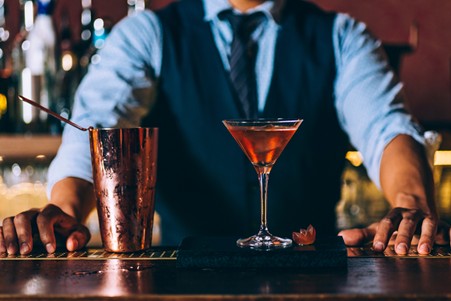Remote sales of alcohol are not new in New Zealand. They’ve been part of the Sale and Supply of Alcohol Act 2012 for years, covering purchases made without face-to-face interaction—through websites, phone orders, or mail subscriptions.
What has changed is how alcohol is delivered. Platforms like Uber Eats and DoorDash have made it possible to get a bottle of wine or a six-pack with the same ease as a takeaway meal. This convenience is good for consumers, but it adds new challenges for licensees. The rules haven’t changed, but the risks have.
And with the festive season fast approaching—yes, it’s only September but Christmas will be here before we know it—remote sales and deliveries are set to increase. That makes now the right time for businesses to make sure their systems are robust, compliant, and ready for the busiest time of year.
Who Can Sell Alcohol Remotely?
Any off-licence holder can sell alcohol remotely, either by:
- Holding a Section 40 endorsement (for businesses that only sell remotely, such as wineries or online-only retailers), or
- Operating as a general off-licence (like a supermarket or bottle store) that sells both in-store and remotely.
Key Requirements for Remote Sellers
Whether selling direct or via a delivery partner, the same obligations apply:
- Delivery Restrictions – No alcohol deliveries are allowed between 11pm–6am, or on Good Friday, Christmas Day, or before 1pm on Anzac Day. Easter Sunday deliveries are only allowed for wine made on-site.
- Age Verification – Reasonable steps must be taken to confirm both the buyer and the recipient are 18+. That means checks at the point of sale andat the point of delivery.
- Licence Visibility – The licence holder’s details (name, number, expiry date, and a copy of the licence) must be clearly displayed online and on receipts.
- Advertising Rules – Promotions must not encourage excessive drinking, target minors, or suggest alcohol is free. Discounts of 25% or more are restricted unless part of approved catalogues.
Responsibilities in Today’s Delivery Landscape
With third-party delivery platforms in the mix, extra care is needed:
✅ Robust ID checks– Delivery drivers must refuse handover if the recipient looks under 25 and cannot show valid ID.
✅ Safe delivery practices– Alcohol should never be left unattended at the door.
✅ Oversight of partners – The licence holder remains legally responsible, even when using Uber Eats, DoorDash, or others. Training, monitoring, and clear procedures are essential.
Why This Matters
Remote alcohol sales are here to stay. They expand reach for businesses and offer convenience to consumers—but if not managed properly, they can create real harm.
The principle is simple: convenience must never outweigh compliance. Businesses that put responsibility first will meet the law, protect communities, and build trust with customers and regulators. Those that don’t risk fines, licence loss, and reputational damage.
My perspective? The law may be the same, but delivery models have evolved. Success now depends on proactive responsibility—because safe, compliant systems protect not just customers, but the long-term credibility of the industry.

